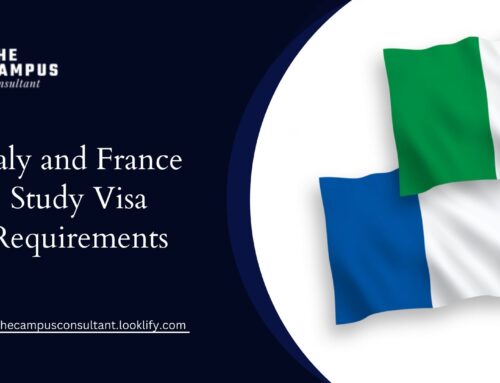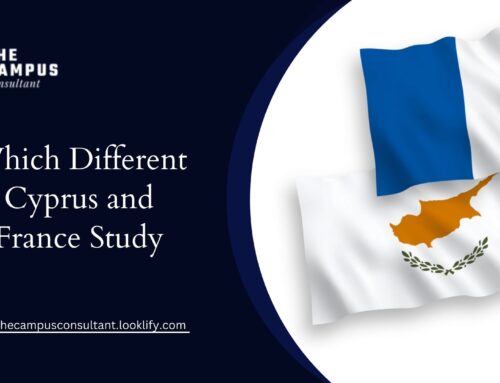Introduction
As you embark on this exciting academic journey, it’s essential to understand the living costs associated with studying in this beautiful country. Our comprehensive guide will provide you with invaluable insights to help you manage your budget effectively. Living costs in France for international students vary depending on the city and lifestyle. On average, students can expect to spend between €800 to €1,200 per month, covering accommodation, food, transportation, and other miscellaneous expenses. Paris, being the capital, tends to have higher living costs compared to smaller cities. Rent for a student apartment ranges from €300 to €800 per month, while a meal at a restaurant may cost around €10 to €20. Public transportation is efficient and affordable, but additional expenses may include health insurance and recreational activities. Budgeting wisely is crucial for a comfortable and enjoyable stay as an international student in France.
Accommodation Expenses
One of the primary concerns for international students is accommodation costs. In major cities like Paris, Lyon, and Marseille, rental prices can vary significantly. Opting for student dormitories or shared apartments can be a more economical choice, ranging from €300 to €600 per month. We recommend researching different housing options in advance to find the most cost-effective solution that suits your needs. Accommodation expenses for international students in France vary based on the city and type of housing. In major cities like Paris, renting a studio or a one-bedroom apartment can cost between €500 and €1,000 per month. University dormitories are often more budget-friendly, ranging from €150 to €500 per month. Shared apartments, known as colocations, provide a middle-ground option, averaging around €400 to €700 monthly. It’s essential to consider utilities, which typically cost an additional €100 to €200 per month. Additionally, some cities offer housing subsidies for students. Exploring various accommodation options can help students find a balance between comfort and affordability.
Tuition Fees and Scholarships
Understanding the tuition fees structure is crucial for budget planning. Public universities in France offer reasonable fees, typically ranging from €200 to €3,000 per year. Additionally, explore the numerous scholarships available for international students, which can significantly alleviate your financial burden. Some institutions and government programs offer grants based on academic merit or specific criteria. Tuition fees for international students in France vary based on the level of study and the institution. On average, undergraduate programs cost between €170 and €700 per year, while master’s programs range from €243 to €3,770 annually. Doctoral programs often have lower or no tuition fees. Some prestigious institutions may have higher fees. International students can explore various scholarships to alleviate the financial burden. The Eiffel Excellence Scholarship, for example, covers tuition, living expenses, and more. Additionally, universities and external organizations offer specific scholarships based on merit, nationality, or field of study. Thorough research into available scholarships can significantly assist international students in managing their educational expenses in France.
Daily Expenses and Groceries
Navigating daily expenses involves a mix of prudent choices and exploring affordable options. On average, international students spend around €300 to €500 per month on groceries and other necessities. Local markets and supermarkets are excellent places to find budget-friendly options. Embrace the vibrant French culinary culture by occasionally indulging in local markets for fresh produce and authentic ingredients. Daily expenses and groceries for international students in France depend on personal habits and location. On average, students can spend around €20 to €30 per day on meals, including eating out and occasional groceries. Cooking at home is a cost-effective option, with grocery bills averaging €200 to €300 per month. Supermarkets like Carrefour and Intermarché offer a range of affordable options. Eating at university cafeterias can be economical, with meals costing around €3 to €6. It’s advisable to take advantage of local markets for fresh produce and cost-effective alternatives. Developing a budget-conscious approach to daily expenses ensures a more sustainable student lifestyle in France.
Transportation Costs
France boasts an extensive and efficient public transportation system, making it convenient for students to explore the country. Monthly public transport passes cost around €70 to €90. Biking is a popular and eco-friendly option in many cities, providing a cost-effective means of commuting. Understanding the local transport options can contribute significantly to minimizing your overall living expenses. Transportation costs for international students in France vary depending on the city and the mode of transportation. Public transportation is widely available and cost-effective. Monthly public transport passes typically range from €30 to €75, depending on the city. Biking is a popular and eco-friendly option, with the possibility of renting a bike for around €15 to €30 per month. For occasional travel, trains and buses are efficient, with prices varying based on the destination. Students may also benefit from discounted transportation cards and youth rates. Owning a car involves additional expenses such as fuel, insurance, and parking fees. Considering these options and planning transportation wisely contributes to managing overall living costs for international students in France.
Healthcare Insurance
Healthcare is a crucial aspect to consider during your stay in France. International students are required to have health insurance coverage, which typically costs around €200 to €500 per year. This ensures access to quality healthcare services and provides peace of mind throughout your academic journey. Healthcare insurance is a crucial consideration for international students in France. Most students are required to have health coverage during their stay. The French healthcare system usually does not cover all medical expenses for international students, making private health insurance essential. The cost of health insurance varies, ranging from €200 to €600 per year, depending on the coverage and provider.Some universities may offer group insurance plans, while others may recommend specific providers. It’s important to ensure that the chosen insurance covers medical expenses, hospitalization, and repatriation. Adequate health insurance provides peace of mind and ensures that students can access necessary healthcare services without incurring significant out-of-pocket expenses.
Part-time Employment Opportunities
To supplement your budget, explore part-time job opportunities available to international students. France allows students to work up to 20 hours per week during the academic year. Engaging in part-time work not only provides financial support but also offers valuable cultural experiences and language improvement. International students in France have the opportunity to seek part-time employment to supplement their finances. Students from outside the European Union are typically allowed to work up to 964 hours per year, while EU/EEA students have unlimited work rights. Common part-time jobs include tutoring, restaurant work, or positions in retail. Salaries vary, but students can earn around €10 to €15 per hour. Moreover, many universities have career services that assist students in finding part-time jobs or internships related to their field of study. It’s crucial to balance work commitments with academic responsibilities and comply with visa regulations. Engaging in part-time employment not only provides financial support but also offers valuable work experience.
Entertainment and Cultural Experiences
While managing expenses is essential, it’s equally important to immerse yourself in the rich cultural experiences France has to offer. Many museums and cultural events provide discounted rates for students, allowing you to explore the artistic and historical treasures without breaking the bank. Cinema tickets typically cost around €8 to €12, with student discounts available. Enjoying French cuisine at affordable restaurants may range from €10 to €25 per meal. Students can also engage in sports or join clubs at universities for social and recreational activities. Balancing a mix of free and budget-friendly entertainment ensures that international students can fully immerse themselves in the vibrant cultural scene that France has to offer without breaking the bank.
Summary
In summary, navigating the living costs in France for international students requires meticulous planning and research. Understanding the intricacies of accommodation, tuition fees, daily expenses, transportation, healthcare, and employment opportunities will empower you to make informed decisions. Embrace the adventure, savor the cultural richness, and make the most of your academic journey in France.







[…] Contact us today Previous […]